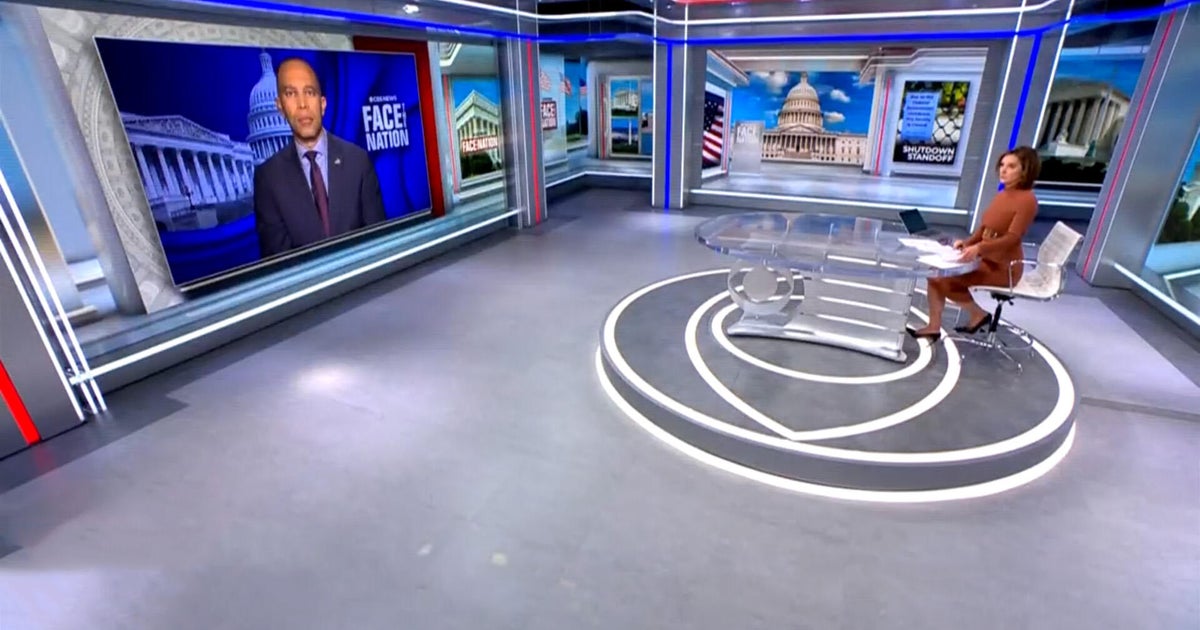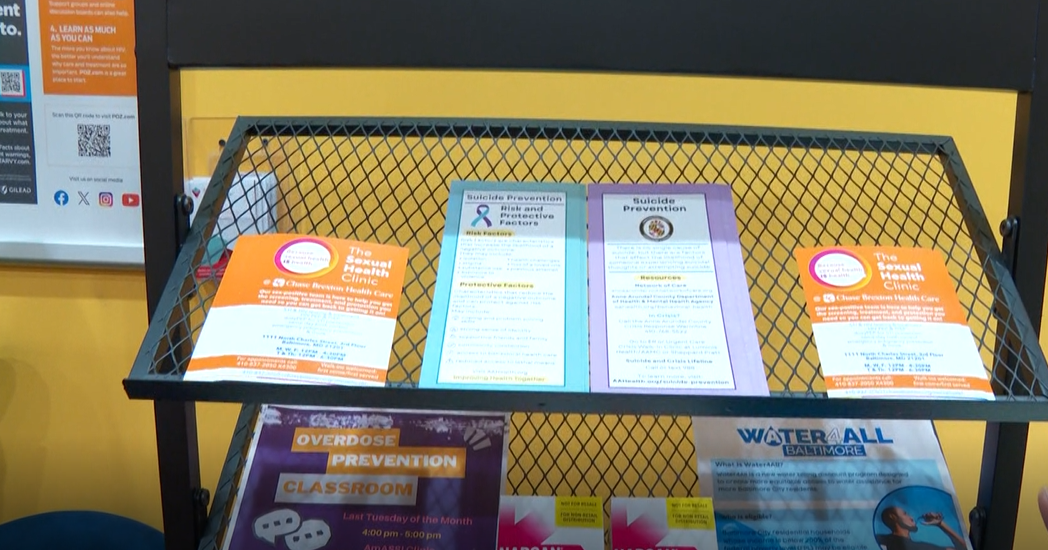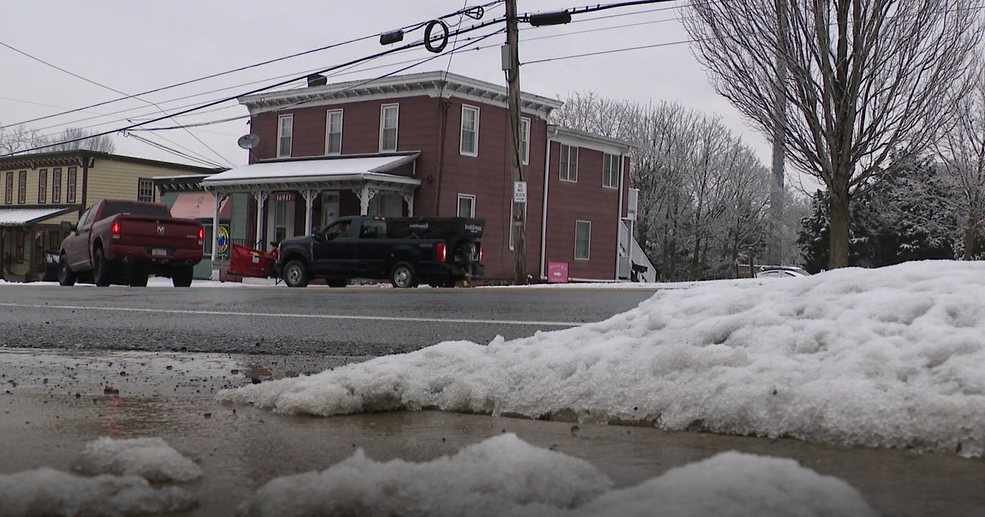Transcript: Maryland Gov. Wes Moore on "Face the Nation," April 7, 2024
The following is a transcript of an interview with Maryland Gov. Wes Moore that aired on April 7, 2024.
MARGARET BRENNAN: For more on the recovery following last month's collapse of Baltimore's Francis Scott Key Bridge, and the plan to rebuild it. We're joined now by Maryland Governor Wes Moore. Governor, welcome.
GOV. WES MOORE: Thank you so much. Thanks for having me.
MARGARET BRENNAN: And we are so sorry about the recovery and the fatal accident. How do you describe where we are in this process of recovery and potentially rebuilding?
GOV. MOORE: Well, I think first the state is still heartbroken. We lost six Marylanders. Just yesterday, we recovered the body of- of Maynor Sandoval, and in our hearts, continue to be with the families and with all of the families. But we also know that we've got a long road to recovery ahead of us. But that road, and that recovery is now happening. You know, the- the- the enormity of this collapse cannot be overstated. We are literally talking about a ship that is the size of the Eiffel Tower, and the weight of the Washington Monument that is now sitting in the middle of the Patapsco River with a bridge that is just iconic. Like I don't, I don't know what the Baltimore skyline looks like, without the Key Bridge. It's been there since I've been alive. And it's now sitting in the bottom of the river with part of it sitting on top of the ship. So, the recovery is going to be long. But the resilience that we have seen from the people of our state and the people of the city of Baltimore has been inspiring, where we've really rallied.
MARGARET BRENNAN: So- we heard when the President visited that reiteration of a pretty aggressive timeline, though, to get things up and running again, perhaps even by the end of May. Is that realistic?
GOV. MOORE: It's realistic. And I think that it's going to take some time. It's gonna be a 24/7 operation--
MARGARET BRENNAN: -- To have full functioning?
GOV. MOORE: To have full functioning. And that means being able to not just- not just continue the maritime operations that we have. And also, it's understanding how important that port is not just to Baltimore, but to the entire country. And right now, if you look at the Port of Baltimore, we have operations that are taking place by a truck and by rail. It's just- it's the maritime operations that have come to a halt. But we are going to do everything in our power to make sure we're bringing closure and comfort to these families to be able to reopen this channel to be able to support our workers and support families who have been impacted by it and also begin the process of the rebuild of the bridge. It is an aggressive timeline, but we are going to work around the clock to make sure that we hit this timeline.
MARGARET BRENNAN: I read- all right, I have more to talk about with you, but I need to take a commercial break. So please stay here with us. And hope all of you will stay with us as well back in a moment.
— COMMERCIAL BREAK —
MARGARET BRENNAN: Welcome back to Face the Nation, we continue our conversation with the Governor of Maryland, Wes Moore. Governor, I want to pick up on this question of how to rebuild and how quickly. I know you will be going to the Capitol this week to meet with lawmakers to discuss the funding. Senator Van Hollen just mentioned, they're reports the price tag could reach as high as a billion, if not more. How much are you asking us taxpayers for?
GOV. MOORE: Well, we don't know yet- yet know what the- what the price tag is going to be. The thing that we know is that the Port of Baltimore is responsible for $70 billion of economic activity to the American economy. We know that- the that the Key Bridge had over 36,000 people who traveled over it every single day, people getting from where they live, to where they work, to where they worship, to where they go to school. And so the importance of knowing that this is not just a tragedy that has regional implications, but a tragedy that has national implications is incredibly important. The Port of Baltimore is the largest port in this country, for new cars, and for heavy trucks, and agricultural equipment and spices and sugars. And so the ability for us to have a collective and a bipartisan response to its rebuild is imperative in this moment.
MARGARET BRENNAN: So, the President has vowed to have federal dollars rebuild the bridge, he repeated that again Friday. And then he added on that he'll make sure the parties responsible will pay to repair the damage as well. How is that going to work that taxpayers front the cash and then insurance claims pay them back- how is this going to work?
GOV. MOORE: That's exactly right. So- so basically, what he's saying is, and I'm thankful to the President for saying that this is going to be a national response to something that is a national tragedy. And at the same time, if people need to be held to account for what happened, they must be held to account. There's an- there's an independent NTSB investigation that's taking place right now. I can tell you, I want that investigation to be speedy, I want the investigation to be thorough. And if people need to be held to account for it, there needs to be accountability for what happened that night.
MARGARET BRENNAN: But the courts didn't work in a speedy fashion, by design here. And the ship owner Grace Ocean and the ship manager have filed to limit their liability to $44 million. Do you have any expectation that they will pay for anything?
GOV. MOORE: We expected that to happen. We were prepared for that to happen, there's going to be an independent investigation that will take place. And if they are deemed liable and responsible for what happened, then they need to be responsible for helping with that cleanup.
MARGARET BRENNAN: President Biden also said on Friday, when he visited the port that US Steel and union labor will be used to rebuild it. Can you move swiftly with those kinds of stipulations?
GOV. MOORE: Well, I think it's gonna be important that we are building and rebuilding this with a way that is going to be on time and on budget with a very clear plan. I think if one thing that people know about the work that we've done in the state of Maryland, you know, we believe in labor, and we believe in union work, and we believe in making sure that those key criteria are hit. I know this is gonna be a long project. This is going to be an expensive project. And it's going to require a whole lot of different hands and elements inside of it. But I think people have come to know that we support- we support labor in our state.
MARGARET BRENNAN: How is it going so far?
GOV. MOORE: I've been amazed, because if you would have told me nine days ago, after what I saw that first morning, that we could be here on this Sunday morning, with already channels opened up, already ships that are up to a 14-foot depth that are now able to traverse the river and get to the port. If you would have told me that we were already started moving- you know, we have now moved hundreds of tons out of the river. And if you look at the fact that even just in the past few days, we've received- we removed over 250 tons from the river, that is the equivalent to the weight of the Statue of Liberty. And so, I've been amazed at how this coordination between federal, state, local, the Coast Guard, the Navy, the Army Corps of Engineers, how everything is working in a synced way and I've been very proud of the response.
MARGARET BRENNAN: Governor, good luck. Thank you for the effort. We appreciate your time today.





